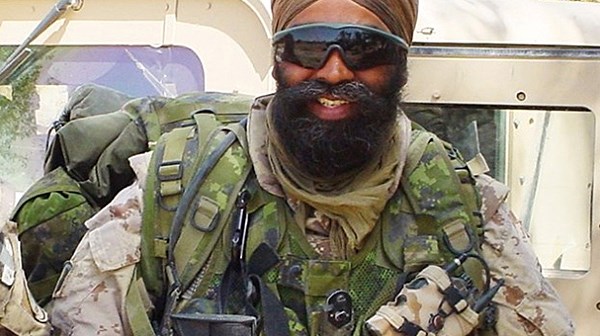Today, thousands of Canadians will stand next to a cenotaph in their city to honor the sacrifice of Canadian veterans.
But among those in the crowds will be family members whose heritage is First Nations, Chinese-Canadian and Indo-Canadian. Black Canadians may also be participating in local services.
It took Abnash Gill, a long-time Coquitlam resident, to remind us that it was not only people of European heritage who fought in two world wars, but people whose heritage was Indian, First Nations, Black or whose parents were born outside of Europe or Canada.
Is this a surprise?
It should not be a surprise to learn that 74,000 Indian soldiers died in World War 1 because the Sikhs have a proud military history on both continents. Canada's new Justice Minister Harjit Sajjan, continues the tradition, and was the first Sikh to command a Canadian army regiment.
Chinese Canadians also participated in the great wars despite the fact that they weren't allowed to vote until after WWII and were subjected to a head tax.
In fact, according to the Chinese Canadian Military Museum Society website, when World War 1 was declared in 1914, approximately 200 Chinese volunteered for the Canadian Army.
As Canadians, we must also remember the contributions of First Nations people to Canada's military history. As many as 4,000 fought in WW I and 3,000 status Indians, and an unknown number of Inuit, Métis also enlisted in WW II in the fight to preserve our freedoms, according to Veterans Affairs Canada.
One story tells of soldiers who transmitted secret messages in Cree, called "code talkers" so the information would go undetected until it was translated by another Cree into English.
And, when considering the diversity of this country's military experience, it's also important to remember that the tradition of military service by Black Canadians goes back long before Confederation, and Black Canadians volunteered in WW I and WWII, although they faced discrimination, and were discouraged, and, at least in the case of the First World War, fought in a segregated battalion.
Today, Remembrance Day, is a great opportunity to recognize that Canada's remarkable diversity is not something new but a long tradition that should be honored, and that non-white soldiers faced remarkable adversity but volunteered anyway.
We tell their stories today, lest we forget.



